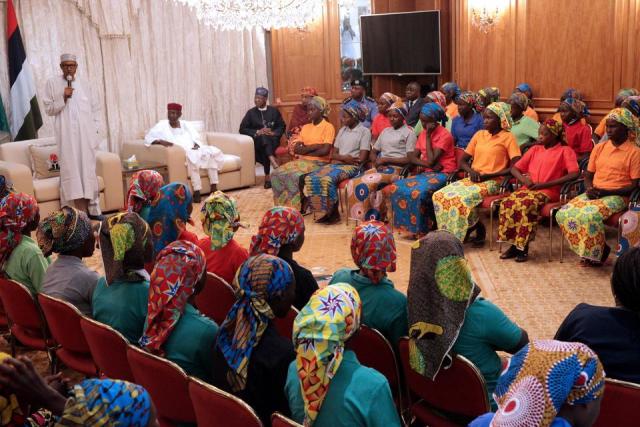“The President wishes to assure
all Nigerians that there is no cause for worry. He is very grateful for
the prayers and good wishes of the people, and hopes they would continue
to pray for the peace and unity of the nation,” said the statement.
Buhari traveled to London in January for what was initially described as a short vacation, but ended up staying for almost two months, delegating authority to his deputy Yemi Osinbajo.
The extended
trip prompted wild speculation in Nigeria about the state of Buhari’s
health—or even whether he had died—but the president’s team has remained
tight-lipped about the nature of his illness. Buhari himself has not
disclosed his ailment, though he did indicate he had a blood transfusion
during his last stay in London and said he had “never been so sick.”
The president’s departure followed a significant breakthrough in the long-running saga of the Chibok girls.
Boko Haram militants kidnapped 276 girls from their school in Chibok in
northeast Nigeria in April 2014, sparking global outrage and a widely
supported campaign entitled Bring Back Our Girls. But prior to the
weekend’s events, 195 of the girls remained missing.
The 82 schoolgirls were handed over to the
Nigerian government on Saturday following a prisoner exchange for Boko
Haram commanders. Nigerian authorities worked with the Swiss government
and the International Committee of the Red Cross on the negotiations,
according to a statement from Buhari’s spokesman.
The
schoolgirls met with President Buhari at the presidential villa in Abuja
on Sunday. “I cannot express in a few words how happy I am to welcome
our dear girls back to freedom,” Buhari told them.
Since his return in March, Buhari has rarely been seen in public and has missed the past three weekly cabinet
meetings. The timing of Buhari’s departure for London has led some
commentators to suggest that the president is using the positive energy
gained from the Chibok girls’ release to deflect from ongoing
speculation about the state of his health.

Comments
Post a Comment